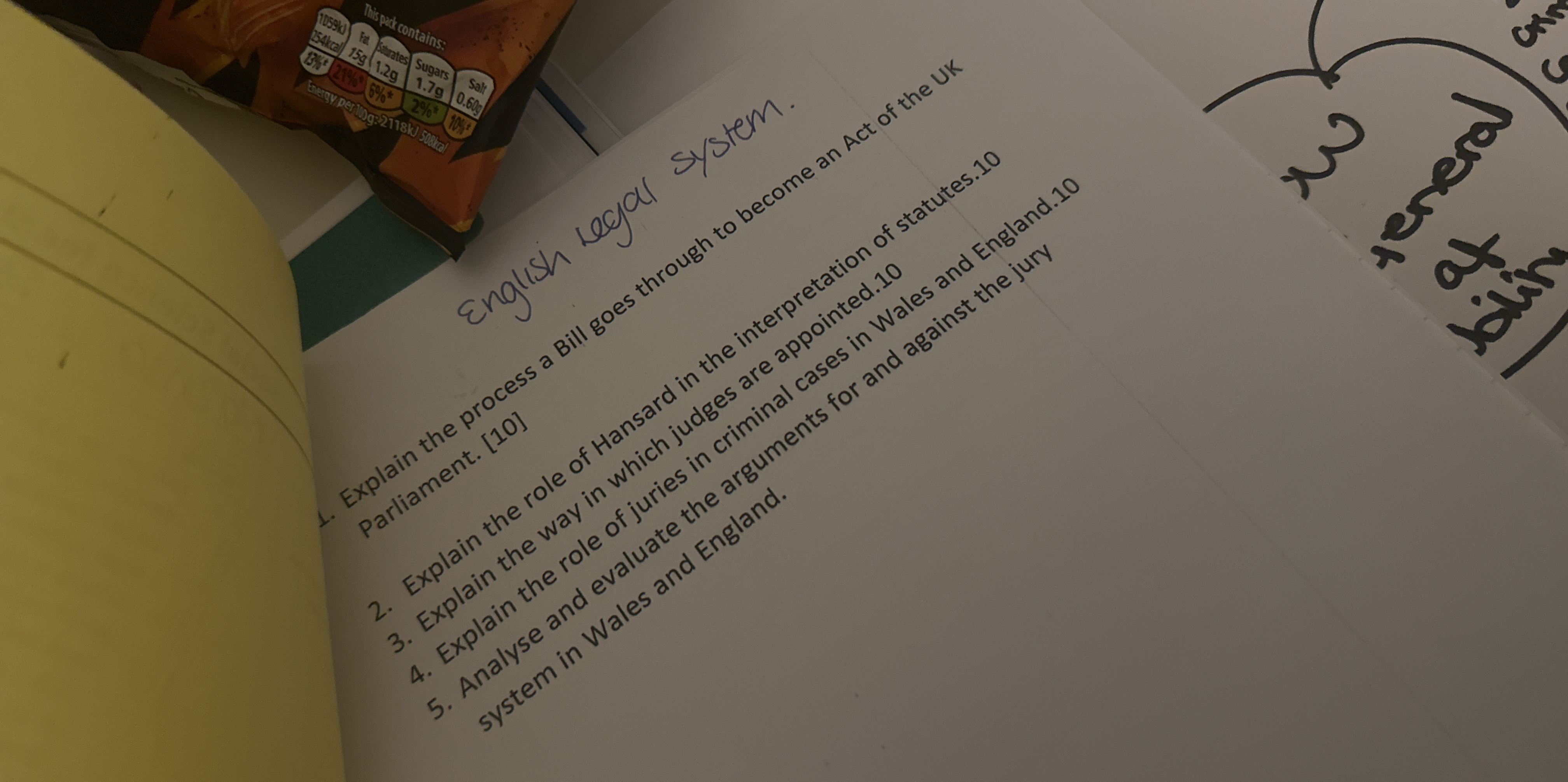Explain the process a Bill goes through to become an Act of the UK Parliament. Explain the role of Hansard in the interpretation of statutes. Explain the way in which judges are ap... Explain the process a Bill goes through to become an Act of the UK Parliament. Explain the role of Hansard in the interpretation of statutes. Explain the way in which judges are appointed. Explain the role of juries in criminal cases in Wales and England. Analyse and evaluate the arguments for and against the jury system in Wales and England.

Understand the Problem
The question is asking for an explanation of various aspects of the English legal system, specifically the legislative process, the role of judges and juries, and arguments surrounding jury trials in Wales and England.
Answer
Bills pass through Parliament stages to become Acts. Hansard aids statutory interpretation. Judges are selected by the Judicial Appointments Commission. Juries in criminal trials ensure community involvement. Juries offer democracy but may lack legal skill and consistency.
-
A Bill becomes an Act after passing through several stages in both Houses of Parliament: First Reading, Second Reading, Committee Stage, Report Stage, and Third Reading in both the House of Commons and House of Lords, followed by Royal Assent.
-
Hansard is the official transcript of all debates in Parliament. It assists in the interpretation of statutes by providing insights into legislative intent during debates.
-
Judges are appointed by the Judicial Appointments Commission based on merit, qualifications, and after thorough assessment and recommendation.
-
Juries in criminal cases decide the verdict based on evidence presented. Composed of 12 members, they ensure community participation in the justice system.
-
Advantages of Jury System:
- Democratic participation
- Community representation
- Safeguard against state power
Disadvantages:
- Potential bias
- Lack of legal expertise
- Inconsistency in decision-making
Answer for screen readers
-
A Bill becomes an Act after passing through several stages in both Houses of Parliament: First Reading, Second Reading, Committee Stage, Report Stage, and Third Reading in both the House of Commons and House of Lords, followed by Royal Assent.
-
Hansard is the official transcript of all debates in Parliament. It assists in the interpretation of statutes by providing insights into legislative intent during debates.
-
Judges are appointed by the Judicial Appointments Commission based on merit, qualifications, and after thorough assessment and recommendation.
-
Juries in criminal cases decide the verdict based on evidence presented. Composed of 12 members, they ensure community participation in the justice system.
-
Advantages of Jury System:
- Democratic participation
- Community representation
- Safeguard against state power
Disadvantages:
- Potential bias
- Lack of legal expertise
- Inconsistency in decision-making
More Information
The jury system, fundamental to the justice system, faces debates considering its democratic nature vs. potential for bias. Hansard provides detailed legislative discussion records that reveal lawmakers' intentions.
Tips
Common mistakes include misunderstanding the stages a Bill goes through and underestimating the impact of jury bias. Ensure all legal rules and conventions are clearly known.
Sources
- How does a bill become a law? - UK Parliament - parliament.uk
- GCE AS MARKING SCHEME - Revision World - revisionworld.com
- JURIES - Criminal Court System in UK - criminal-courts-review.org.uk
AI-generated content may contain errors. Please verify critical information